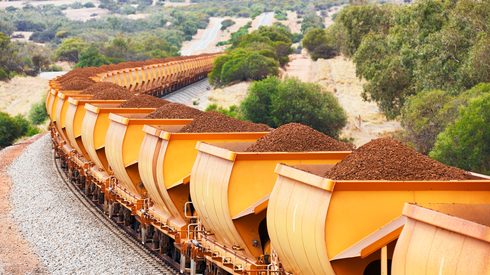The country imported 1.17 billion tonnes of the steelmaking raw material last year, compared with 1.07 billion tonnes in 2019, according to the statistics released on Thursday January 14.
This is despite a 4.5% year-on-year drop in imports in December to 96.74 million tonnes. Last month’s volume is also 1.4% lower than that in November.
China’s monthly iron ore imports trended downward in the fourth quarter. Imports in November fell by 8% month on month.
China’s early economic recovery from the Covid-19 pandemic contributed to the increase in its iron ore imports in 2020, sources told Fastmarkets.
“China’s economy has recovered from the downtrend due to Covid-19 quickly. Its strong demand resulted in iron ore that is typically shipped to other regions being diverted to its shores instead,” a trading source in Shanghai said.
Fastmarkets’ index for iron ore 62% Fe fines, cfr Qingdao averaged $109.03 per tonne in 2020, up by 16.4% compared with 2019’s average of $93.63 per tonne.
Fastmarkets’ index for iron ore 65% Fe Brazil-origin fines, cfr Qingdao averaged $122.31 per tonne last year, up by 17% from $104.50 per tonne a year earlier.
Explore the six macro-economic and steel-specific dynamics set to rebalance the Asia steel and scrap market in 2021. Please read our full report Asia Steel and Scrap: Six Key Forces Driving 2021 today.






